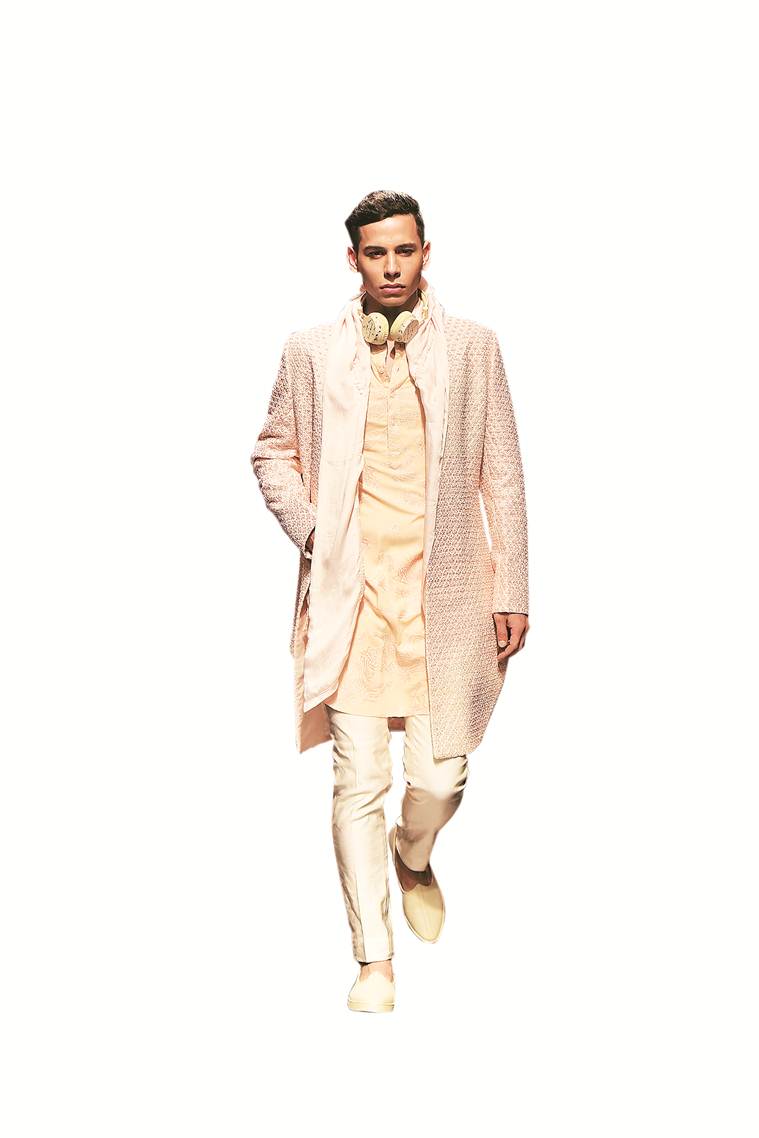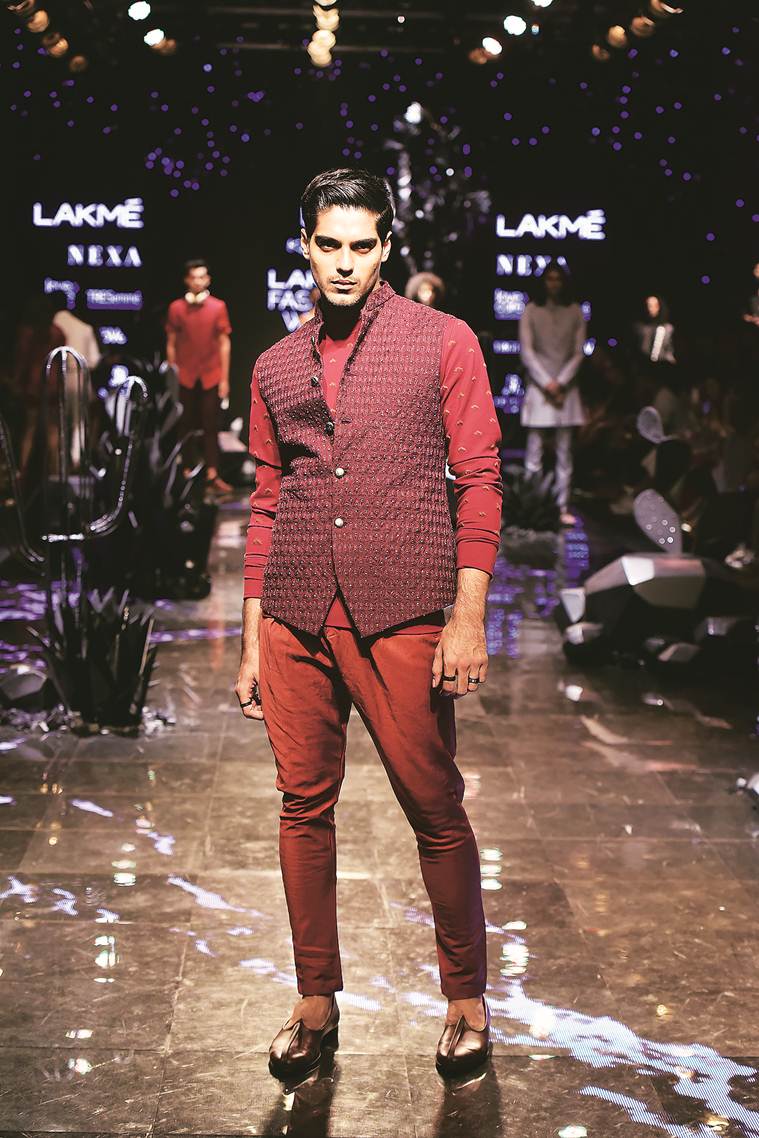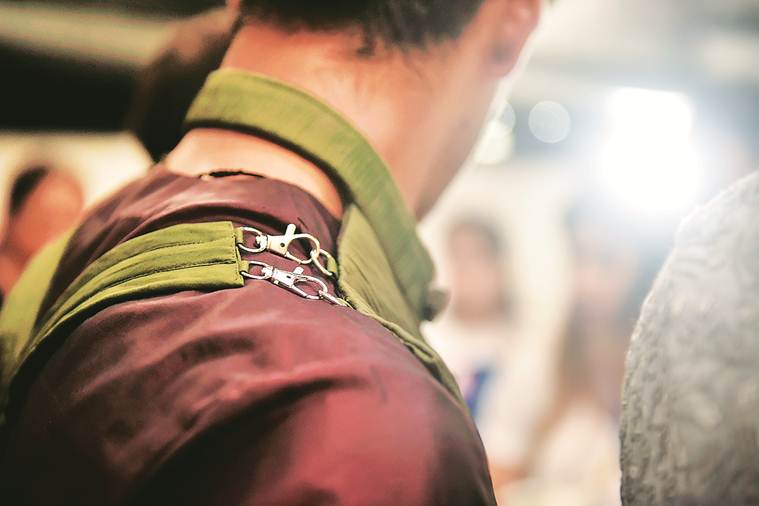
By the time we meet designer Kunal Rawal on a busy Tuesday morning at Dstress, his Juhu store, he is already on his second large coffee, and predictably is buzzing with energy, but that’s not just because of the coffee; he is a morning person. He has had a busy weekend — he presented his latest collection Confluence at the recent edition of the Lakme Fashion Week — and a busy month, he opened his Delhi store at Emporio, and there are plans afoot for one in Hyderabad as well.
He started the year with a bang, with his flagship store at the erstwhile Rhythm House, the iconic music store in Kala Ghoda, Mumbai’s art district. “I love putting a show together. I love the energy, the crazy hours and 50 cups of coffee. I could not have asked for a better year. Getting Rhythm House was surreal, people don’t normally associate a heritage building with fashion. But that’s the point, fashion should surprise you naa. I did luck out with the venue, that area is a few beats relaxed than the rest of Mumbai,” says Rawal, the man of the moment where men’s fashion is concerned.

Rawal is an exception of sorts in the Indian fashion scene, where womenswear has always been the thing that raked in the moolah. Menswear was always relegated to the second slot and served as a bonus. But Rawal was always interested in men’s fashion, a decision that stemmed from the need to make clothes that he could wear. “I started out by making clothes for myself, and then for friends. I remember that time when fashion was not taken seriously, it was just a creative hobby. I am glad to be part of the journey where it has become this powerful industry. I see the same with menswear today. I was told that if I don’t do womenswear I won’t survive, because women shop for men. But, let me tell you, men like dressing up and being involved with the process as much as women do, if not more. We are as concerned about our paunch showing as women,” says Rawal. “And I wanted to bridge the gap between two categories that exist for menswear – the highly opulent, wedding clothes, which all look the same and the simple office wear. How about something cool for a Friday night? Or a casual work party? What does one wear then?”

Rawal’s creations have fitted sherwanis with zippers, waistcoats with metal clasps on the shoulder and silk kurtas with minimal embroidery. “When I started my first label Dstress, I was making Western clothes with strong Indian roots. The detailing comes from my grounding in textiles. I am all for the sheen, not the shine,” says the graduate from London College of Fashion, who now has his own label Kunal Rawal.
With his father as a garment exporter, Rawal grew up in a world where words like design, fabric, and consignment were a staple. “I remember going on these drives with my dad and my sister. He would buy us ice-cream, and then we would go to our factory. My sister and I would jump into the bales of fabric. We played a game, where we would shut our eyes and feel the fabric, and guess a rayon from a cotton,” shares the 33-year-old, “I could have joined my father’s business, and expanded it, that would have been easier. But I wanted to break away and do my own thing.”

And break away he did. Rawal has designed the costumes for films such as Aisha (2010) and Once Upon A Time in Mumbai Dobaara! (2013). A-listers such as Shahid Kapoor and Sonam Kapoor are staunch supporters of his work. He has also had a stint with Being Human. While he may be dressing up the who’s who of Bollywood, he turns to the streets of the Mumbai for inspiration. “I love watching people at signals and talking to them. I have never wanted to be one of those designers who are sketching feverishly in an AC studio. My factory is in Andheri East. I often see some jazzy outfits, a simple pant-shirt would be paired with a cropped jacket with a biker head. I think Mumbai has a strong sense of street fashion,” he says.
Rawal channels his inner geek in his photochromatic clothing that changes colour in the sun. A soft pink jacket turns to a hot neon number. “Two for the price of one,” he chuckles.